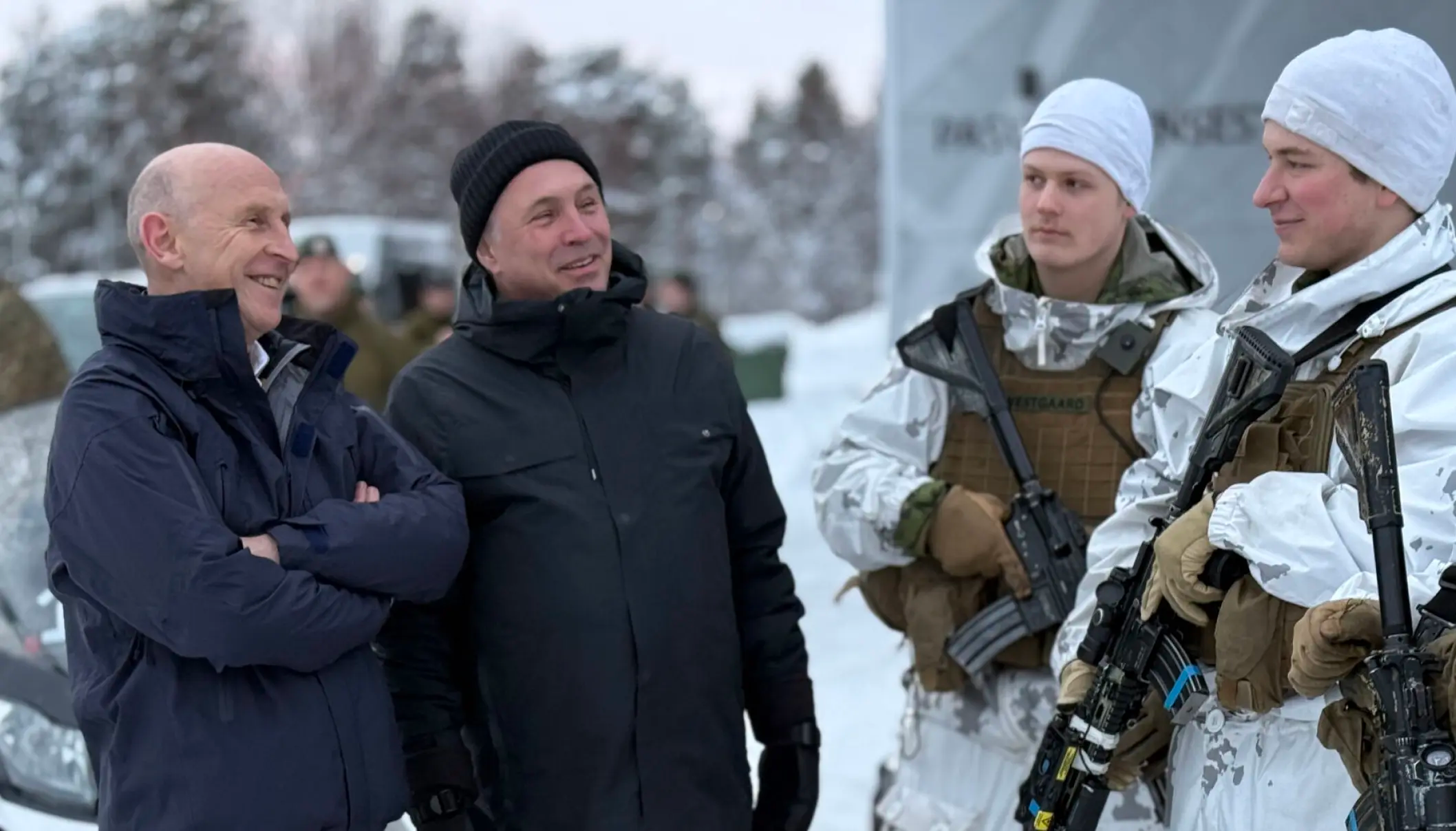Norway, UK team up to protect subsea infrastructure against Russian hybrid attacks

The two NATO-members agree to tackle Russian underwater threats with uniting cutting-edge naval capabilities.
Norway and the United Kingdom on Thursday declared to kickstart work towards a deeper and more ambitious defence agreement.
“We share the same security challenges, increasing threats, and commitment to democracy and the rule of law,” the joint statement published by the end of Defence Secretary John Healey’s two days visit to northern Norway says.
Healey met with Defence Minister Tore Sandvik in Finnmark on Wednesday where the two drove snowmobile along the border with Russia’s military stronghold on the Kola Peninsula.
On Thursday, Healey and Sandvik embarked on the Norwegian Coast Guard vessel KV Bison and the British surveillance ship RFA Proteus at port in Bodø. The latter is dedicated to monitor seabed infrastructure and carries remotely-operated vehicles.
The Barents Observer has for years put focus on Russia’s fleet of special surface vessels and deep diving mini-submarines capable of conducting work on the seabed. The Defence Ministry’s so-called Main Directorate for Deep Sea Research (nick-named GUGI) operates out of Olenya Bay on the Kola Peninsula and from St. Petersburg.
Focus on hybrid warfare
Russian ships capable of conducting advanced underwater operations have increased their sailing in waters near the UK and Norway after the full-scale war on Ukraine started in 2022. A web of gas pipelines crosses the North Sea from British and Norwegian petroleum installations to continental Europe.
Hybrid warfare conducted by non-state actors and countries like Russia is today high on agendas among European allies fearing attacks against critical infrastructure amid higher tensions as Moscow’s war against Ukraine soon enters the eleventh year.
There are about 600 long-distance underwater electricity and data cables across world oceans. In the last year or so, a dozen such cables have been cut in the Baltic Sea, some by accident, others maybe intentionally, but investigators have failed to put a finger of blame on anyone responsible.
“By using our advanced capabilities today, and developing our joint working into the future, we are able to send a message to anyone who may intend to cause harm to our critical national infrastructure, that we will see you,” the joint UK, Norway statement says.
Importance of northern frontline
Healey and Sandvik say the two countries will work on the new defence agreement with a determination to sign by summer 2025.
“We will work government to government; military to military; and industry to industry, to deliver on our shared objectives and strengthen our two nations’ security, as well as NATO’s northern frontline,” the defence officials explains.
In days of trans-Atlantic uncertainties, the Norwegian, British statement ends by underlining unity:
“Through decades of cooperation, we know that we are stronger when we stand together.”
Related stories from around the North:
Canada: Poilievre promises new military base in Nunavut as part of Arctic defence plan, CBC News
Denmark: Denmark pivots new ship plans from Baltic to Arctic defence, Eye on the Arctic
Finland: Defence Minister: Nato troops will be stationed in Rovaniemi, Sodankylä
Greenland: US interest boosts Greenland’s independence bid in talks with Denmark, party says, Reuters
Related
Major military infrastructure upgrade completed at Leuchars
Upgraded facilities have been delivered for The Royal Scots Dragoon Guards and 2nd Battalion Royal Electrical and Mechanical Engineers, including refurbished o
UK public EV charge points surpass 75,000 as infrastructure booms
The UK’s electric vehicle (EV) charging infrastructure has hit a significant milestone, with the number of public charge points surpassing 75,000. According t
Infrastructure firm strengthens UK presence with Brierley Hill warehouse |…
National infrastructure service provider MJ Quinn has secured a newly refurbished industrial site in Brierley Hill as part of its ongoing UK ex
UK: Work Begins on New Railway Station in Okehampton
Initial work has begun to build a new railway station in Okehampton, Devon. The new 15 million GBP station, named Okehampton Interchange, will connect We













